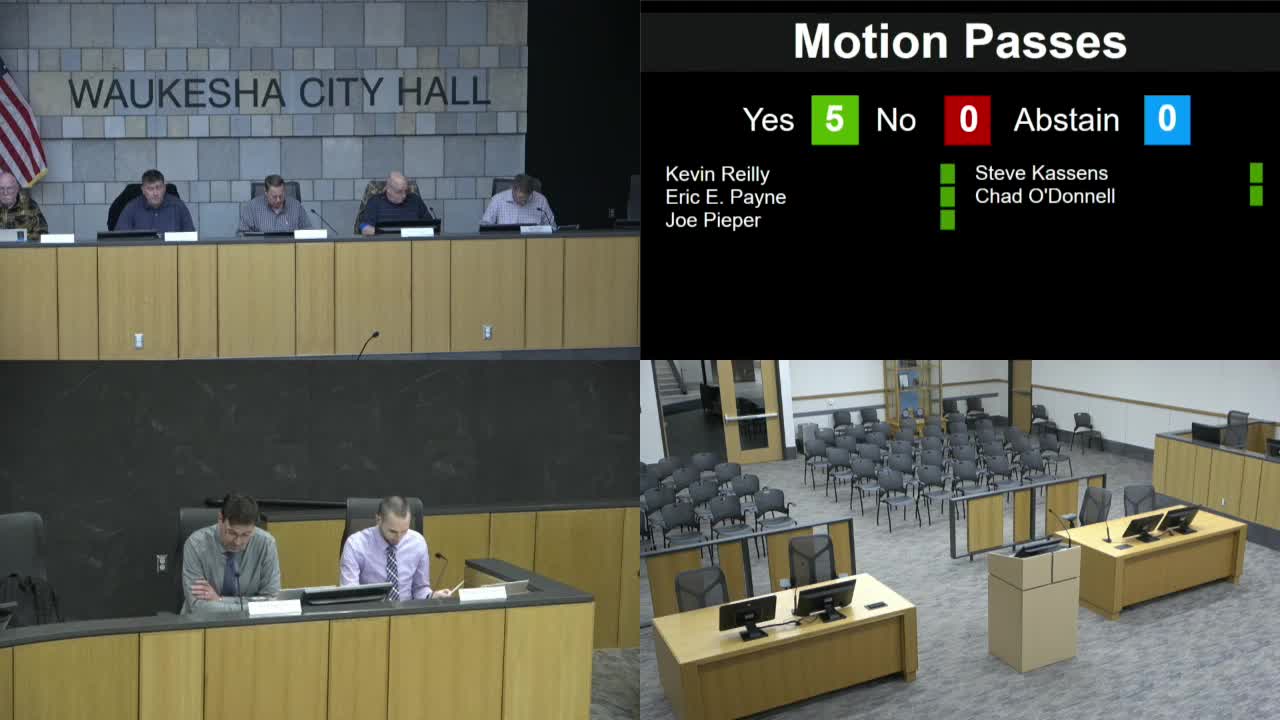Waukesha board backs consultant contract to cover traffic-engineering gap
Get AI-powered insights, summaries, and transcripts
Subscribe
Summary
The Waukesha Board of Public Works on Nov. 6 recommended entering a contract with an outside traffic engineering firm to provide engineering support while the city continues to recruit a permanent traffic engineer.
The Waukesha Board of Public Works on Nov. 6 recommended entering a contract with an outside traffic engineering firm to provide engineering support while the city continues to recruit a permanent traffic engineer.
City engineering staff told the board the request resulted from a year-long vacancy in the traffic-engineering role and reviewed proposals from multiple firms; TADI scored highest in the evaluation and offered the lowest hourly rates. "TADI scored the highest," a staff presenter said, and staff noted the firm lso proposed the most favorable hourly rates for the years of service covered.
Why it matters: staff said the consultant would handle routine traffic-signal maintenance, retiming and design support for capital projects until the city fills the position. Engineering staff presented a budgetary assumption of about 1,300 consultant hours in a full calendar year to maintain minimum operations, including signal timing updates related to the bypass project and other traffic changes.
Budget and comparison: staff provided a budget estimate that combined an operating allocation of roughly $145,000 and a CIP allowance of $75,000; they said those two lines together produce an estimated annual cost "like the combination of the two of them" of about $220,000. Staff contrasted that figure with an in-house traffic engineer salary range shown in job posting materials, which they said runs roughly $90,000 to $127,000. The consultant hourly rates, staff said, are materially higher on an hourly basis than an internal employee.
Board discussion: board members asked about anticipated annual usage and whether the consultant would retime signals. An engineering staff member said the consultant would work with city staff to retime intersections and respond to system changes: "We haven't been adaptive and proactive in changing our signal timing ... because we haven't had a traffic engineer to be able to do that," the staff member said. Board members said they preferred hiring a full-time engineer but recognized recruitment challenges.
Action and vote: Board member Payne moved to recommend the contract; Joe Piper seconded. The chair called the vote; the transcript records ayes from Cassens, Kevin Riley, Piper, O'Donnell and Dayton and the motion carried.
Implementation notes: staff said the CIP portion (about $75,000) could be built into project costs rather than levy dollars. Staff also said if the city fills the traffic-engineer position the consultant engagement would end.
What remains unreported: the contract amount and final scope as executed were not specified in the meeting packet summary; award details will be finalized in contract documents.
